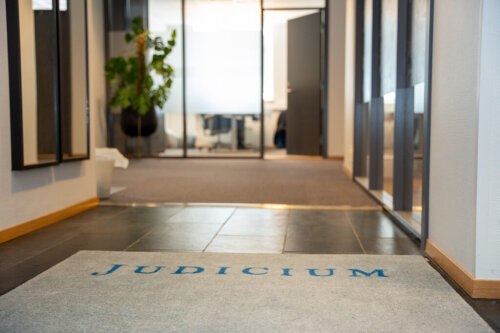Best ADR Mediation & Arbitration Lawyers in Norway
Share your needs with us, get contacted by law firms.
Free. Takes 2 min.
Or refine your search by selecting a city:
List of the best lawyers in Norway
About ADR Mediation & Arbitration Law in Norway
Alternative Dispute Resolution (ADR) in Norway, encompassing mediation and arbitration, offers an alternative to traditional litigation in resolving disputes. Mediation involves a neutral third party assisting the disputing parties to reach a voluntary settlement, while arbitration involves an arbitrator making a binding decision after considering both parties' arguments. Norway emphasizes ADR to promote efficient, private, and less adversarial dispute resolution. The country's legal system supports ADR as a viable option for both domestic and international disputes, with specific rules and institutions, such as the Oslo Chamber of Commerce, providing structured arbitration and mediation services.
Why You May Need a Lawyer
Seeking legal advice in ADR mediation and arbitration can be invaluable in various situations:
- When drafting or reviewing arbitration agreements to ensure they comply with Norwegian law.
- In navigating the ADR process, which may require knowledge of specific procedural rules.
- To represent your interests effectively during mediation or arbitration proceedings.
- If there's uncertainty about the enforceability of an arbitration award or a mediated agreement.
- When challenging or defending an arbitration award in Norwegian courts.
Local Laws Overview
Norwegian ADR law is influenced by both Norwegian legal traditions and international standards, such as the UNCITRAL Model Law. Key aspects include:
- The Norwegian Arbitration Act 2004 is pivotal in governing arbitration proceedings, ensuring fairness and efficiency.
- The act ensures that arbitration agreements are explicitly recognized and enforceable.
- Mediation is supported through various public and private initiatives, aimed at low-cost and amicable settlements.
- Arbitrators must be impartial and may be challenged if perceived as biased.
- The New York Convention on the Recognition and Enforcement of Foreign Arbitral Awards applies, facilitating international arbitration.
Frequently Asked Questions
What is the difference between mediation and arbitration?
Mediation is a non-binding process where a mediator facilitates negotiations between parties to reach a voluntary agreement. Arbitration, on the other hand, involves a binding decision made by an arbitrator based on the evidence presented.
Is ADR mandatory in Norway?
ADR is not mandatory, but it is encouraged in many contractual and commercial arrangements as a first step before litigation. Some industries or contracts may require ADR as part of their terms.
Can an arbitration decision be appealed?
Arbitration decisions, known as awards, are generally final and binding. Grounds for setting aside an award in Norway are limited, focusing on procedural discrepancies or public policy concerns.
Are ADR proceedings confidential?
Yes, one of the key benefits of ADR is confidentiality. Arbitration proceedings and mediated settlements are private and typically not disclosed to the public.
What are the qualifications for an arbitrator in Norway?
Arbitrators in Norway should be impartial and independent, with expertise relevant to the dispute. There are no specific statutory qualifications, but parties can specify requirements in their arbitration agreement.
How is ADR initiated?
ADR is usually initiated through an agreement by the dispute parties to engage in mediation or arbitration. This agreement can be part of a pre-existing contract or made post-dispute.
Is legal representation required in ADR?
Legal representation is not strictly required, but it is advisable, especially in complex cases, to ensure that legal rights and interests are adequately protected during proceedings.
How long does an arbitration process take in Norway?
The duration varies depending on the complexity of the case, but arbitration typically resolves faster than court litigation, often concluding within a few months to a year.
What costs are involved in ADR?
Costs in ADR generally include mediator or arbitrator fees, legal representation if chosen, and any administrative fees set by an ADR institution. These are often shared equally between parties unless otherwise agreed.
Can mediation convert into arbitration?
A mediation process can transition into arbitration if both parties agree and if the original mediation agreement allows such a transition. This ensures that unresolved issues can still reach a binding conclusion.
Additional Resources
For more help and information, consider these resources:
- Oslo Chamber of Commerce: Provides support for both mediation and arbitration services in Norway.
- Norwegian Bar Association: Offers guidelines and a directory to find legal professionals experienced in ADR.
- Ministry of Justice and Public Security: Oversees the framework governing ADR in Norway.
Next Steps
If you need legal assistance in the field of ADR mediation and arbitration in Norway, consider the following steps:
- Identify Your Needs: Assess whether your situation requires mediation, arbitration, or another legal route.
- Consult a Lawyer: Seek legal advice to understand your rights and options. A lawyer can help draft or review agreements and represent you in ADR proceedings.
- Engage with ADR Institutions: Contact organizations such as the Oslo Chamber of Commerce to initiate the ADR process.
- Prepare Your Case: Gather relevant documentation and evidence that will support your position in the ADR process.
- Proceed with ADR: Follow the agreed-upon procedure for mediation or arbitration to resolve the dispute efficiently.
Lawzana helps you find the best lawyers and law firms in Norway through a curated and pre-screened list of qualified legal professionals. Our platform offers rankings and detailed profiles of attorneys and law firms, allowing you to compare based on practice areas, including ADR Mediation & Arbitration , experience, and client feedback.
Each profile includes a description of the firm's areas of practice, client reviews, team members and partners, year of establishment, spoken languages, office locations, contact information, social media presence, and any published articles or resources. Most firms on our platform speak English and are experienced in both local and international legal matters.
Get a quote from top-rated law firms in Norway — quickly, securely, and without unnecessary hassle.
Disclaimer:
The information provided on this page is for general informational purposes only and does not constitute legal advice. While we strive to ensure the accuracy and relevance of the content, legal information may change over time, and interpretations of the law can vary. You should always consult with a qualified legal professional for advice specific to your situation.
We disclaim all liability for actions taken or not taken based on the content of this page. If you believe any information is incorrect or outdated, please contact us, and we will review and update it where appropriate.
Browse adr mediation & arbitration law firms by city in Norway
Refine your search by selecting a city.













